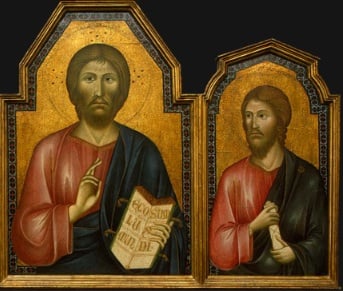 James has a goal in mind when he begins this section: he wants his readers to be those who listen and do. What he wants them to listen to is what he mentions next, and it is a source of controversy. Here are his words from James 1:25:
James has a goal in mind when he begins this section: he wants his readers to be those who listen and do. What he wants them to listen to is what he mentions next, and it is a source of controversy. Here are his words from James 1:25:
But the man who looks intently into the perfect law that gives freedom,
and continues to do this, not forgetting what he has heard, but doing
it-he will be blessed in what he does.
What is the “perfect” and the “law” that gives “freedom”? Each of these expressions can cause controversy but I want to cut to the chase.
First, James shifts words from “logos” to “nomos”: from word to Law. This shows that James has surely had Torah in mind when he’s been speaking of “logos.” This “law” is the Torah of Moses. James here is talking about Torah observance.
Second, James understands the Torah here as a Torah that is “perfect” and this, so I think (and argue in my commentary), refers to the Torah of Moses as crystallized by Jesus in the Jesus Creed, and I appeal here only to James 2:8-10 for support. James is looking up to his brother on this one; he also looks like him!
Third, James thinks this way of conceptualizing the law will lead to a life of freedom, and it is not at all beyond possibility that James thinks the Torah as interpreted by his contemporaries was a burden. I appeal here to Acts 15:10: “Now then, why do you try to test God by putting on the necks of the
disciples a yoke that neither we nor our fathers have been able to
bear?” Even if James does not see this as the background, he thinks a proper peering into the Law followed by a proper obedience leads to a life of freedom.
